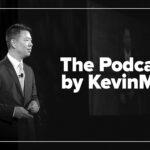I grew up in Pickens, South Carolina—a small, poor Appalachian town burdened by health struggles.
In school, I saw food insecurity long before I had the vocabulary for it. Classmates ate honey buns and chips for breakfast, and lunch trays held processed food, pre-packaged meat, and syrupy fruit. For many, it was their only meal of the day.
Years later, while shadowing physicians in nursing homes and hospitals, I began to hear a troubling but familiar refrain: “We’re seeing strokes earlier and earlier—now in people in their late 40s.”
It brought me back to those lunch lines—not because anyone failed, but because the system did. In many communities, low-nutrient, highly processed food is cheaper and more accessible than healthier alternatives. Quietly, one lunch tray at a time, children are set on a path toward chronic illness.
It is not just statistics—it’s personal.
In middle school, a friend of mine lost his father to a heart attack in his late 30s. A few days later, I was at their house. His mother, still grieving, handed us bowls of boxed mac and cheese. “I bought it because it said ‘low sugar,'” she said. “I don’t want to leave him an orphan due to an illness.”
However, like many processed foods, it was packed with sodium, saturated fat, and refined carbohydrates. She was trying, but she had been misled.
Food marketing thrives on that confusion. Labels like “low sugar” and “low fat” are slapped on ultra-processed, nutrient-poor products. Big food companies generate billions off that illusion while Americans get sicker. Meanwhile, insurance and pharmaceutical companies profit from treating diet-related illnesses in people who never had consistent access to or education about real nutrition.
Many chronic conditions—like type 2 diabetes, hypertension, and stroke—are deeply tied to diet. When they strike, people don’t just get sick; they’re often consumed by faceless, profit-driven corporations that dictate every aspect of care, turning prescriptions into lifelong dependencies and reducing patients to mere billing codes.
Taxpayers pay for it at both ends: First, through subsidies that prop up unhealthy food systems, and later, through higher medical costs, longer wait times, and overburdened public hospitals.
That’s why I wrote The American Farm and School Nutrition Support Act—a federal policy amendment I drafted in my first year of medical school. It proposes a zero-cost expansion of Farm-to-School programs by reallocating existing funds, like those from the National School Lunch Program, to support whole, locally sourced foods in schools. The goal is to strengthen farmers and give children a life-long nutritional foundation.
Most public health bills never make it past committee—not because they lack merit, but because of deep political division. I spent hours listening to people who disagreed with me, and it shaped everything. I didn’t write this bill to score points but to build bridges. And I found that listening—really listening—wasn’t just humbling; it was productive.
Since launching the initiative, I’ve contacted over 45 congressional offices, conducted media interviews, and connected with advocacy groups. There’s been progress—and plenty of silence—but I keep going. Hearing back from both Democrats and Republicans has only reinforced my belief that this work can rise above politics.
I’m not doing this just to change policy—I’m doing it to show people from overlooked places that you don’t need connections or credentials to make a difference. Even if others have doubted you, or you don’t fit the mold of who’s “supposed” to lead, your experiences still matter. You can turn what you’ve lived into something meaningful—even if it’s just bringing a healthy meal to your friend’s Thanksgiving dinner.
This is not just an idea—data backs it:
- Schools that strengthened nutrition standards saw a 47 percent drop in childhood obesity, especially among low-income students.
- Every $1 invested in better school meals yields up to $16 in long-term health and productivity benefits.
- Reducing childhood obesity by just 5 percent could save over $1.5 billion annually in medical costs.
- Children with obesity visit emergency departments 34 percent more often and have 11 percent more outpatient visits compared to their peers.
- Excess weight is now the leading cause of military ineligibility, prompting a national call to action in the report Too Fat to Fight.
Diet is personal but structural: Your ZIP code, income, and access matter. For lower-income children who eat most of their meals at school, improving what is on the tray enhances both health and equity.
Nutritious school meals are also linked to better grades, behavior, and attendance. Kids learn better when they are nourished.
This bill would also create thousands of rural jobs, many of which don’t require a degree but offer competitive wages, revitalizing communities that have long been left behind, like mine.
This is not just about lunch trays. It’s about reclaiming a health care system in which only 10 to 20 percent of outcomes are shaped in the doctor’s office or under the scalpel. The rest are determined by what people eat, where they live, and how they grow up.
This is the future of medicine—where we are trained to treat the whole person. Healing does not always start with a prescription pad—it starts with food and addressing root causes.
I’ve also lost friends to suicide. Mental health is complex, but nutrition is fundamental to mood, brain development, and resilience. Our medicine should start with what’s on our plates.
When I imagine the kind of doctor I want to be, I don’t just see patients in gowns. I see them in grocery aisles, classrooms, and around kitchen tables—guided by policies rooted in science, compassion, and common sense.
School lunches taught me that health doesn’t begin in the clinic—it begins in the cafeteria.
Scarlett Saitta is an osteopathic medical student.



















